Some of the links in this article are affiliate links, meaning that if you click the link, I may get a small portion of the sale at no cost to you. In no way does this affect our description or review of the following products. As an Amazon Associate, I earn from qualifying purchases.This is of no cost to you and does not skew our recommendations.
In the midst of a global wave embracing healthier and sustainable lifestyles, the spotlight is firmly on the surging popularity of plant based supplements. Personally, I’ve undergone a complete transformation of my supplement regimen, opting exclusively for top-tier plant-based options to ensure optimal absorption.
Navigating the ever-evolving landscape of conscious choices, particularly those affecting both the environment and personal well-being, I’ve witnessed plant-based alternatives, especially rich in plant-based proteins, taking center stage.
These high-quality supplements offer a myriad of benefits, from boosting energy and vitality to soothing our nervous systems in the midst of life’s chaos. Join me on this journey as we unravel the reasons behind this flourishing trend and shed light on some remarkable options.
Ready to explore my favorite recommendations? Here’s a swift rundown of some of the Best Plant-Based supplements I’ve discovered
- Orgain Organic Plant-Based Protein Powder for muscle building
- Garden of Life Vegan Collagen Builder for skin, hair, and nails
- Athletic Greens for gut health and healthy aging
- Anthony’s Organic Ground Chia Seeds for digestion and fatty acids
- Vegan Omega 3 Supplement for cardiovascular health and cognitive function
RELATED: 15 Simple Ways to Sustainable & Green Living
A Shift in Perspective: Health and Sustainability
Amidst our modern era, where our food sources often fall short of the nutritional richness enjoyed by our ancestors, many of us resort to dietary supplements to bridge the gaps. The contemporary perspective on health and well-being has undergone a profound transformation.
Traditionally, our approaches revolved around animal-derived products. Yet, a burgeoning awareness of environmental sustainability, animal welfare, and the health advantages associated with plant-based diets has sparked a notable paradigm shift.
At the forefront of this revolution are high-quality plant-based supplements, particularly those emphasizing plant-based proteins, emerging as indispensable contributors to our quest for holistic well-being.
Plant-Based Proteins: The Building Blocks of Well-Being

Let’s talk about the heroes of this story—plant-based proteins. These nutritional powerhouses play a crucial role in supporting a healthy lifestyle. Unlike their animal-based counterparts, plant-based options offer a range of essential nutrients without the baggage of saturated fats and cholesterol. Think veggies, quinoa, tofu, and hemp seeds—providing a diverse array of amino acids vital for everyday bodily functions.
The real magic?
Plant-based proteins come with a fantastic bonus—they’re great for your heart. Studies indicate that swapping animal proteins for plant-based alternatives can lower blood pressure and reduce the risk of cardiovascular diseases. [1] Plus, these proteins often come bundled with extra benefits like fiber, antioxidants, and a variety of vitamins and minerals, amplifying their positive impact on health.
Making Sustainable Choices for Individual and Environmental Well-Being

The rise of plant-based supplements is intricately linked to a broader movement towards sustainability. Traditional animal farming puts a strain on resources, contributing significantly to deforestation, greenhouse gas emissions, and water pollution. [2] On the flip side, plant-based alternatives generally leave a smaller environmental footprint.
Consumers are increasingly drawn to products that align with their values of environmental responsibility. Plant-based supplements offer a sustainable choice that promotes personal health while contributing to a more eco-friendly lifestyle. This dual advantage has been a driving force behind the surge in demand for plant-based alternatives.
Exploring the Best Plant-Based Supplement Options
Now, let’s dive into the vibrant world of plant-based supplements available. Here are some standout options catering to diverse nutritional needs:
Plant-Based Supplement #1: Orgain Organic Plant-Based Protein Powder
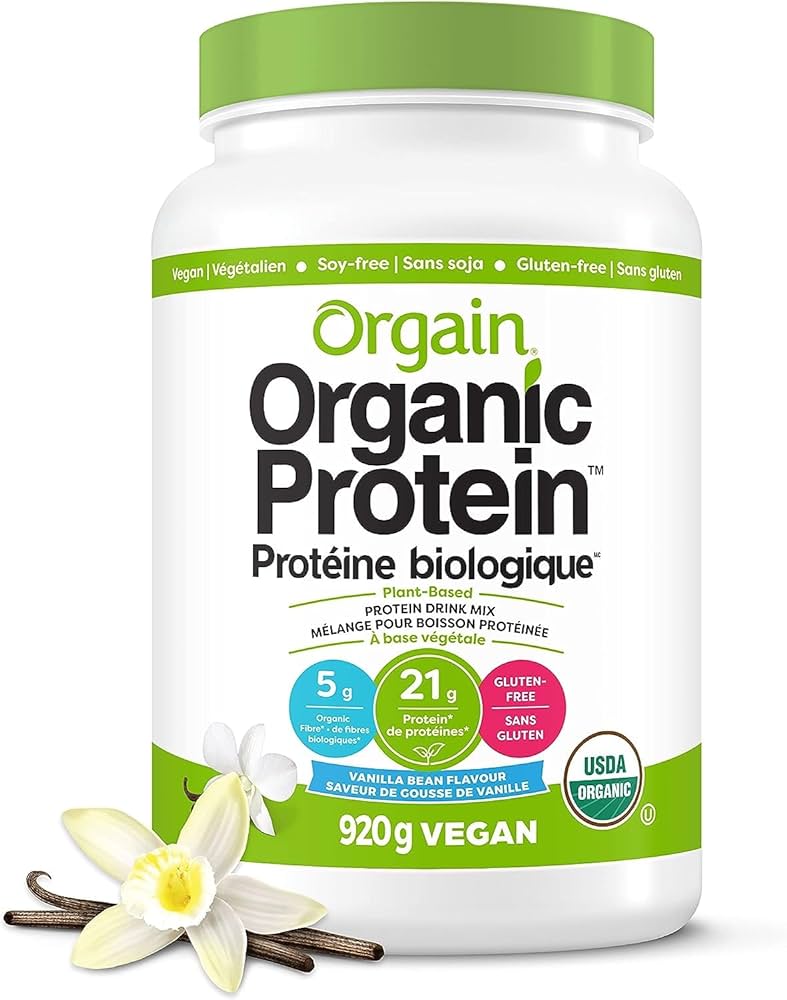
This highly-rated protein powder combines pea protein, brown rice protein, and chia seeds to deliver a complete amino acid profile. It’s suitable for various dietary preferences and provides 21 grams of protein per serving. One of the primary benefits of Orgain Organic Plant-Based Protein Powder is its ability to deliver a complete amino acid profile. This is crucial for individuals seeking a plant-based protein source that covers all essential amino acids, as our bodies require these building blocks for various physiological functions.
Plant-Based Supplement #2: Garden of Life Vegan Collagen Builder
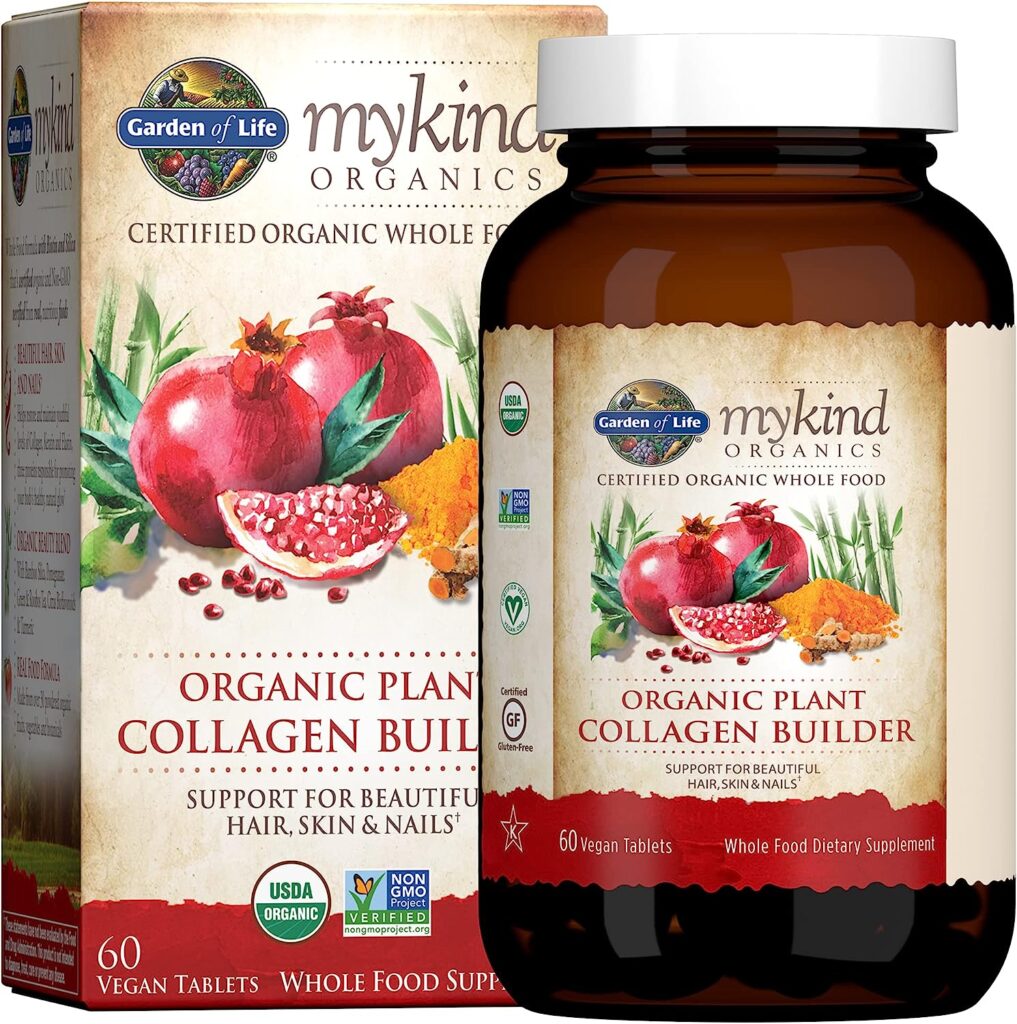
Garden of Life Vegan Collagen Builder stands out as a plant-based powerhouse, designed to support the body’s natural collagen production for beautiful hair, skin, and nails. Enriched with Silica from Organic Bamboo, the supplement promotes a youthful glow without resorting to animal collagen. Packed with high polyphenolic Pomegranate and over 30 fruits, vegetables, and herbs, it provides comprehensive nourishment. Certified Vegan and USDA Organic it aligns with various dietary preferences, making it an inclusive choice for those seeking a plant-powered path to vibrant well-being.
Plant-Based Supplement #3: Athletic Greens
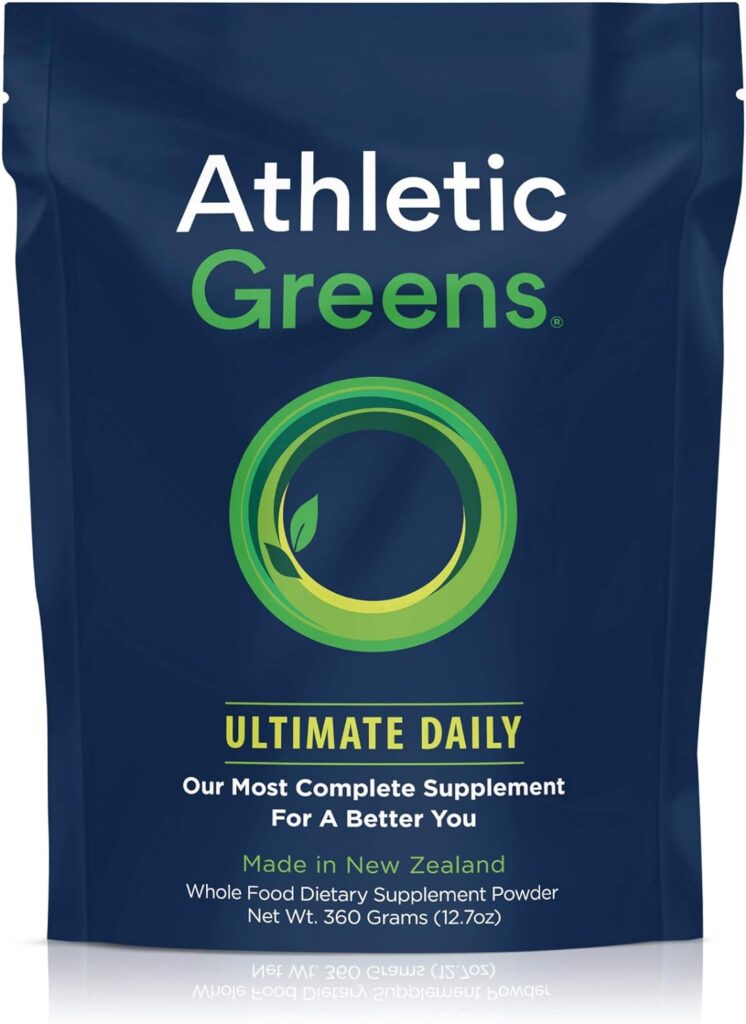
Athletic Greens Ultimate Daily is a comprehensive health elixir designed to meet the diverse nutritional needs of your body. It targets essential areas such as energy, immunity, recovery, gut health, digestion, hormonal and neural support, and healthy aging. Athletic Greens sets itself apart by being easy on the stomach, highly absorbable, and free from harmful chemicals, artificial additives, GMOs, and a range of allergens. In essence, one scoop a day of Athletic Greens has the potential to replace the majority of your supplement regimen.
Plant-Based Supplement #4: Anthony’s Organic Ground Chia Seed
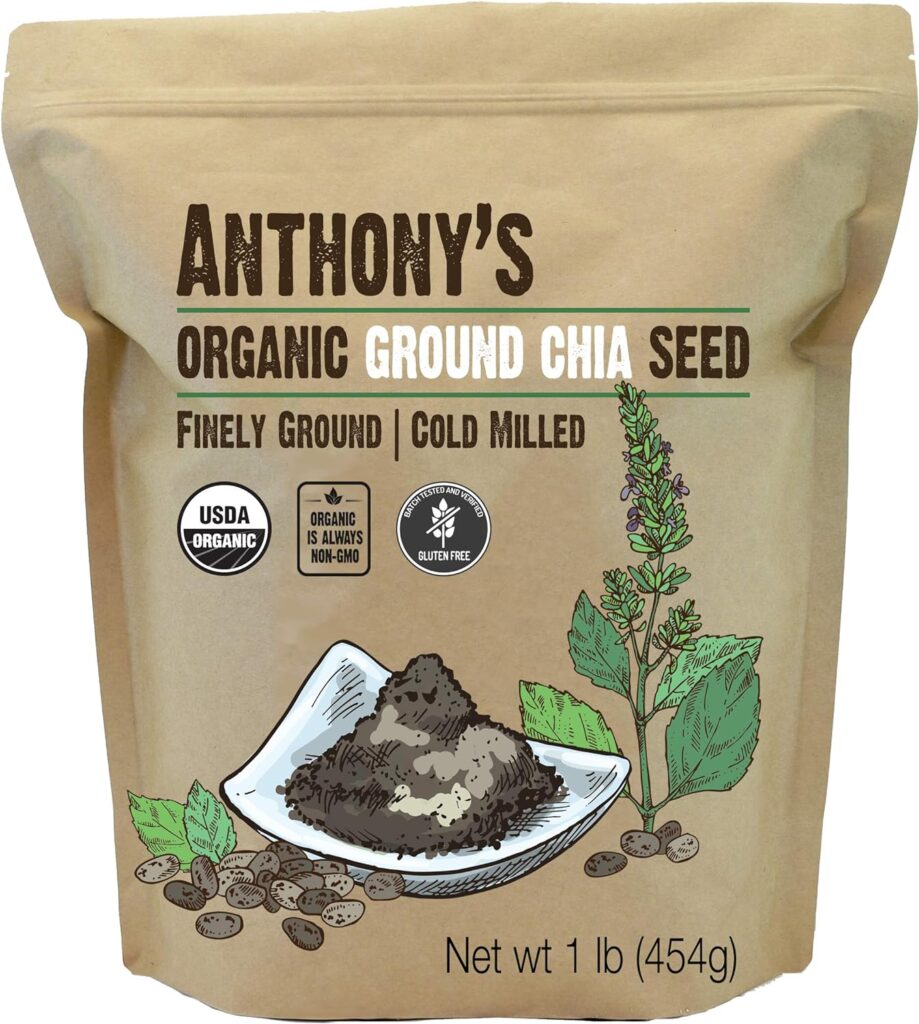
Chia seeds are rich in omega-3 fatty acids, fiber, and protein, making them an excellent addition to support overall health. They can contribute to heart health, aid digestion, and provide sustained energy. Additionally, chia seeds can be a versatile ingredient, easily incorporated into smoothies, yogurt, or as a topping for salads and desserts.
Chia seeds can enhance the nutritional profile of your diet, providing an additional source of plant-based protein and essential nutrients. The fiber content can also complement the protein-focused supplements you’ve chosen.
Plant-Based Supplement #5: Vegan Omega 3 Supplement
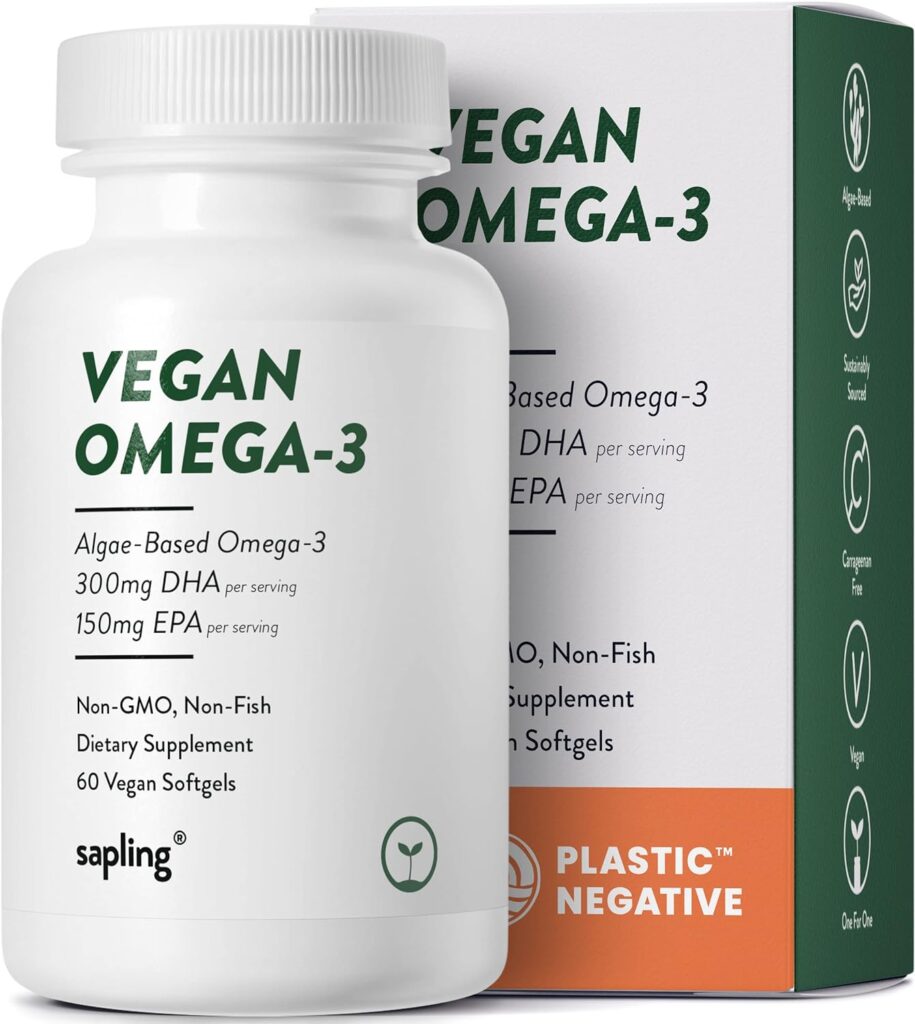
Derived from algae, this is a vegan-friendly alternative to traditional fish oil supplements. It provides essential omega-3 fatty acids, including DHA and EPA, which support heart and brain health. Omega-3s are crucial for overall well-being, and this plant-based option ensures you get the benefits without relying on fish sources. Adding Ovega-3 to your regimen can enhance the omega-3 profile, supporting cardiovascular health and cognitive function.
Navigating the Plant-Based Nutrition Landscape
The demand for plant-based supplements continues to soar, and consumers are exploring a landscape filled with diverse options. Beyond protein powders, plant-based supplements encompass a range of vitamins, minerals, and specialty formulations addressing specific health needs. From plant-based omega-3 supplements derived from algae to iron supplements featuring spirulina, lentils, and beetroot—I I find that Amazon hosts a variety of quality choices to meet the growing demand for comprehensive plant-based nutrition.
Plant-Based Omega-3s: A Sustainable Alternative
Concerns about overfishing and environmental impacts associated with traditional omega-3 supplements have led to the rise of plant-based alternatives sourced from algae oil. Brands like Ovega-3, available on Amazon, offer algae-based omega-3 supplements, promoting heart and brain health while supporting ecological balance.
Iron-Rich Plant-Based Supplements

Iron deficiency is a common concern, especially for those following plant-based diets. Plant-based iron supplements, often featuring ingredients like spirulina, lentils, and beetroot, provide a bioavailable source of this essential mineral. Brands like MegaFood and Garden of Life showcase their plant-based iron supplements on Amazon, catering to those seeking an alternative to traditional iron pills.
Plant-Powered Multivitamins
For a comprehensive approach to plant-based nutrition, plant-powered multivitamins have gained traction. Brands like MaryRuth Organics and Ritual offer thoughtfully formulated multivitamins on Amazon, addressing essential nutritional needs with plant-based ingredients. These supplements often include vitamins D and B12, iodine, and other vital nutrients sourced solely from plant-based origins.
Probiotics and Digestive Health
Supporting digestive health is a growing focus in the realm of plant-based supplements. Probiotics, beneficial bacteria that promote digestive well-being, are available in plant-based formulations. Amazon features options like Garden of Life’s Dr. Formulated Probiotics, emphasizing the use of organic and non-GMO ingredients to enhance both digestive and overall health.
Personalized Nutrition with Plant-Based Options
The expanding world of plant-based supplements goes beyond traditional formulations. Companies like Persona Nutrition offer personalized supplement packs based on individual health goals and dietary preferences. Harnessing the power of plant-based ingredients, these personalized nutrition plans cater to the unique needs of each customer, ensuring a targeted and effective approach to well-being.
Empowering Choices for Plant-Based Supplement FAQ

As consumers embrace the diverse array of plant-based supplements, they are not just prioritizing their health but also contributing to a more sustainable future. The environmental impact of dietary choices is a crucial consideration in today’s well-being landscape. Opting for plant-based supplements aligns with the broader movement towards conscious consumption, where individuals actively choose products that minimize their ecological footprint.
Why is plant-based protein better?
Plant based protein can offer benefits in many ways. It is generally thought to have a better nutrient diversity since it derived from a variety of sources, such as legumes, grains, nuts, seeds, and vegetables. Environmentally, plant-based protein has a lower environmental impact compared to animal farming. It often requires less land, water, and energy, making it a more sustainable choice for those concerned about environmental conservation. Plant-based protein may be easier digestion for Some as it contains a diverse amino acid profile.
Will plant based protein build muscle?
Yes, plant-based protein can contribute to muscle building when incorporated into a well-balanced and appropriately structured diet. Plant-based protein sources contain the essential amino acids necessary for muscle protein synthesis.
How much plant based protein do I need?
Protein needs are generally measured in grams per kilogram of body weight. The Recommended Dietary Allowance (RDA) for protein intake varies for different populations, but a common guideline is around 0.8 grams of protein per kilogram of body weight for sedentary adults.
However, if you are more physically active or engage in regular strength training or endurance exercise, your protein needs may be higher. Athletes or individuals aiming for muscle building may require 1.2 to 2.2 grams of protein per kilogram of body weight.
Why is it a good idea to use plant-based calcium supplements?
Opting for plant-based calcium supplements is advantageous for those following vegan or vegetarian lifestyles, providing a cruelty-free alternative to animal-derived calcium sources. Certain plant-based supplements, particularly those derived from algae, may offer better absorption rates and a broader spectrum of nutrients.
Additionally, plant-based calcium supplements cater to individuals with lactose intolerance or dairy allergies, ensuring they meet their calcium needs without relying on dairy products. Choosing sustainable sources, such as algae-derived calcium, aligns with environmental considerations. These supplements contribute to bone health, supporting strong and well-mineralized bones, and can be a valuable addition to a well-rounded plant-based diet.
Is plant based iron effective?
Yes, plant-based iron can be effective when included as part of a well-balanced and diverse diet. Iron is an essential mineral that plays a crucial role in various bodily functions, including the transport of oxygen in the blood and the formation of red blood cells.
Plant-based sources of iron include:
- Legumes: Lentils, beans, and chickpeas are rich in iron.
- Leafy Greens: Spinach, kale, and Swiss chard are good sources of non-heme iron.
- Nuts and Seeds: Pumpkin seeds, sesame seeds, and cashews contain iron.
- Whole Grains: Quinoa, fortified cereals, and whole wheat products provide iron.
Conclusion: Embracing Plant-Based Supplements for a Healthier Future
The surge in plant-based supplements reflects a broader shift towards sustainable and health-conscious choices. As consumers become more attuned to the environmental impact of their decisions, the demand for plant-based alternatives continues to grow.
With a plethora of accessible options on platforms like Amazon, incorporating plant-based supplements into your routine has never been easier. By making these choices, individuals are not only investing in their well-being but also contributing to a more sustainable and robust future for the planet. Join the journey, embrace the green wave, and let’s build a healthier future together!

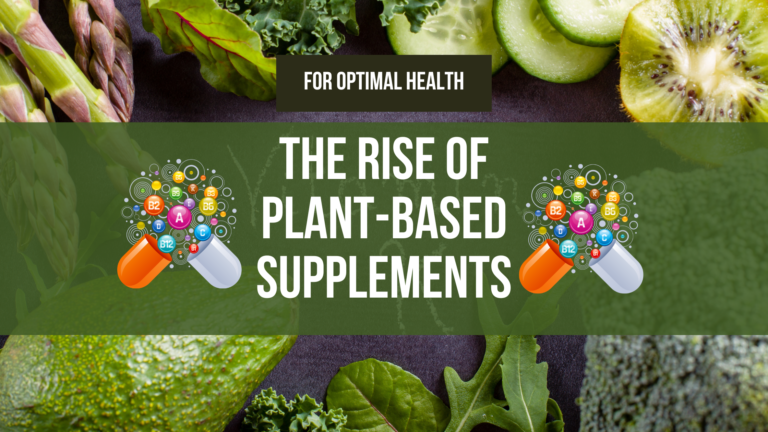






One Response
I enjoyed reading this post. So many health options I wasn’t aware of. The Plant-Based Omega-3s are something I would like to explore. Thanks for sharing this post.